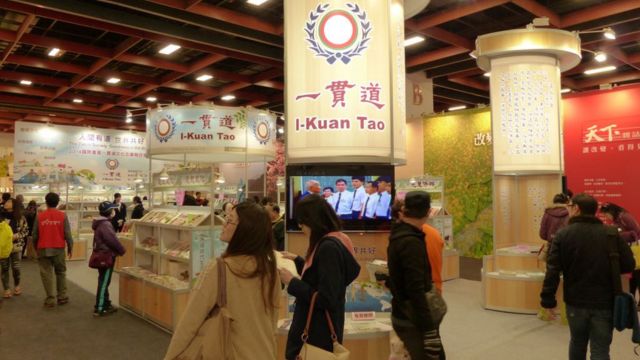On December 26, Taipei’s Mainland Affairs Council warned that the anti-xie-jiao Article 300 of the Criminal Code is now enforced against Yiguandao although it is not in any official xie jiao list.
by Zhao Zhangyong


If you are a follower of the large salvationist religion Yiguandao living in Taiwan, you may believe you may safely visit your relatives in Mainland China. True, Chairman Mao hated Yiguandao and in the 1950s and 1960s launched against it the bloodiest, and most forgotten, religious persecution in the history of Communist China. CCP’s own sources, perhaps exaggerating, report that under Mao “820,000 leaders and organizers, and 13 million followers” of Yiguandao were arrested, with thousands killed in the Chinese jails and labor camps. Many escaped to Taiwan and Hong Kong.
As other salvationist religions, Yiguandao worships the Ancient Mother and relies on messages from various spirits and the Ancient Mother herself transmitted through automatic writing. Its remote origins date back to the Middle Ages, but it acquired its present shape and the name Yiguandao in 1905. Although it was almost destroyed in Mainland China by Mao’s crackdown, it still has millions of followers in the Chinese international diaspora, divided into different branches.
In contemporary China, critical voices suggesting that Mao’s persecution of Yiguandao was a mistake were allowed to express themselves, at least until a few years ago. Xi Jinping’s China uses Article 300 of the Criminal Code to send to jail those active in “xie jiao,” an expression the CCP itself translates in its English-language documents as “evil cults.” In fact, “heterodox teachings” would be a more accurate translation for an expression that the powers that be use in China since the early Middle Ages to stigmatize groups they see as a threat. There are several official and semi-official lists of the xie jiao. Yiguandao has never been listed in any of them.


That has reassured Taiwanese Yiguandao members that they may travel to Mainland China without running the risk of having Article 300 applied against them. This is no longer true, however. On December 26, Taiwan’s Mainland Affairs Council warned Yiguandao Taiwanese devotees not to travel to the Mainland, where Article 300 has been used against co-religionists visiting from Taiwan who have been arrested as followers of a xie jiao. The Council reports that even being in possession of Yiguandao books on vegetarianism has been regarded as enough to characterize Taiwanese visitors as members of a xie jiao and detain them.
If there had been discussions about a possible rehabilitation of Yiguandao before Xi Jinping, they seem to have been halted by Xi’s wide-range persecution of all “unauthorized” religions. The statement by Taiwan’s Mainland Affairs Council confirms that there is a new rule of the game about the xie jiao. If you are listed as a xie jiao, you are a xie jiao and your members go to jail under Article 300. But if you are “not” listed as a xie jiao, you can still be considered a xie jiao if a local branch of the powerful China Anti-Xie-Jiao association, a prosecutor, or the local state security decide that you “look” like a xie jiao, as it happened to the Jehovah’s Witnesses and others.
Sound advise to Taiwanese and overseas Yiguandao devotees: even if you have relatives or businesses there, avoid Mainland China like the plague.









